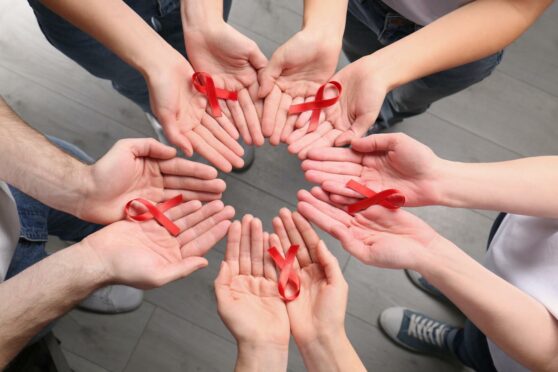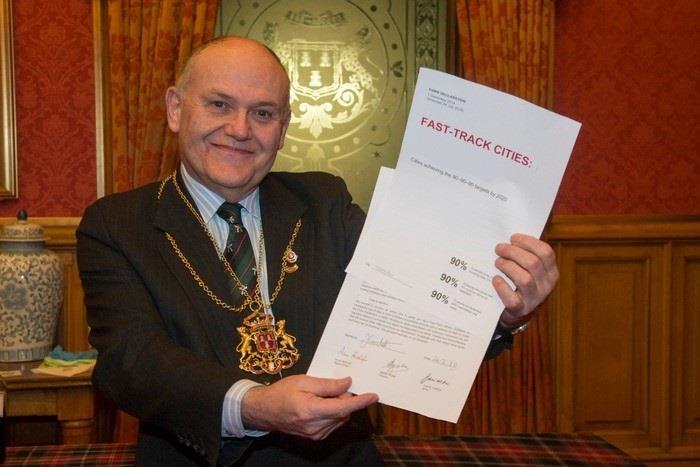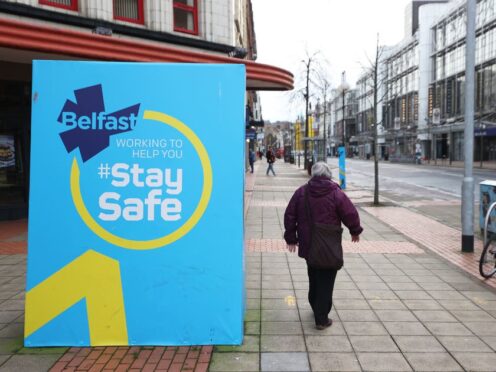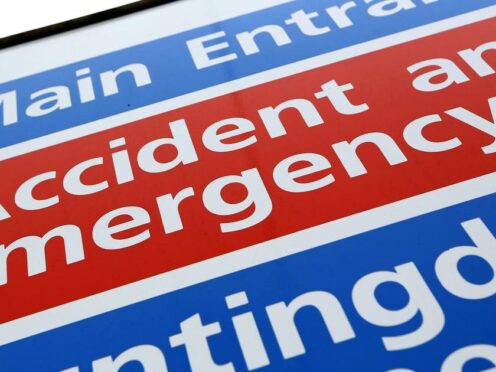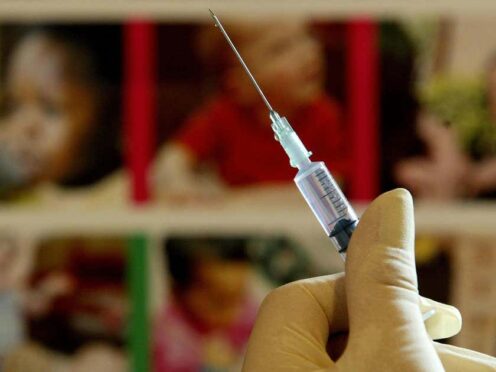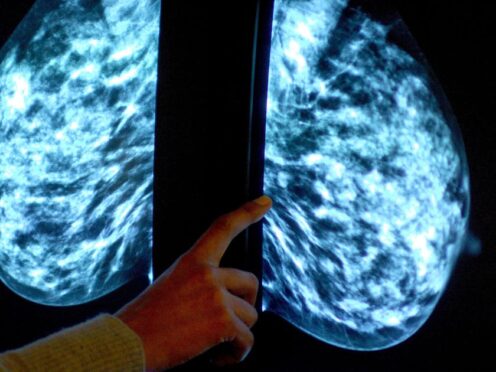Stopping the transmission of HIV in Aberdeen and beyond – is it possible? The answer is yes! Here’s how the reality of living with HIV has changed and how you can help stop the transmission of HIV.
Today is World Aids Day, which takes place annually on December 1.
It’s a day to reflect and focus, to show support for those living with HIV and commemorate those who are no longer with us.
And that makes it the perfect time to take a closer look at what it means to be HIV positive today, and how we can all help stop the transmission of HIV.
What to know about HIV today
- Did you know that someone who is HIV positive and on effective treatment can’t transmit it to others?
- How about the fact that nowadays treatment for HIV can be as simple as one tablet a day?
- And are you aware that Aberdeen has joined the Fast-Track Cities Initiative, an international movement committed to ending HIV as a public health threat by 2030?
With HIV tests, treatment, prevention and care we could be the generation that helps stop the transmission of HIV.
But there are still a lot of myths and misinformation about what HIV is and is not.
During a recent survey for HIV Scotland from 2020, 90% of those asked say they had average, good or very good knowledge of HIV.
And yet, only 17% knew that there is a pill available that stops you from becoming HIV positive.
While only 19% knew that if you are living with HIV and on treatment with an undetectable viral load, you cannot transmit the virus.
Here is a short video from Our Positive Voice Grampian (OPVG) – a forum for those living with or affected by HIV – with some facts about HIV, including how it is transmitted and HIV treatments.
HIV treatment – what U=U means
The Undetectable = Untransmittable (U=U) campaign is all about raising awareness of the effectiveness of HIV treatment today.
It’s a message that OPVG and its partner NHS Grampian is keen to amplify as its focus for World AIDS Day this year.
So what does U=U mean? U=U stands for Undetectable = Untransmittable.
Once diagnosed, you will be prescribed treatment that can reduce the level of the HIV virus in your blood to such a low level that it is undetectable. Once the virus is undetectable for six months, it is untransmittable – meaning you can’t transmit HIV to others.
For those living with HIV, the impact of U=U is profound. Effective treatment means people with HIV can live healthier for longer, without fear of onward transmission.
And HIV tests, treatment and prevention is free for everyone in Scotland.
Colin Stewart, secretary and co-founder of OPVG, says: “Quite a few people that have come to us for peer support either had not heard about the U=U message or didn’t believe it.”
Learning about this campaign can be a big relief for the individuals, couples and families impacted by HIV. It can also help ease stress for people worried or concerned about contracting HIV, or waiting for HIV test results.
Penny Gillies is a public health practitioner with NHS Grampian who has worked with OPVG since its launch. She says: “If you got tested 30 years ago it was a very big deal but it isn’t now, because the treatment is so good it’s considered to be a chronic illness, like any other that you get treatment for and you live a normal life span.”
How a HIV test in Aberdeen works
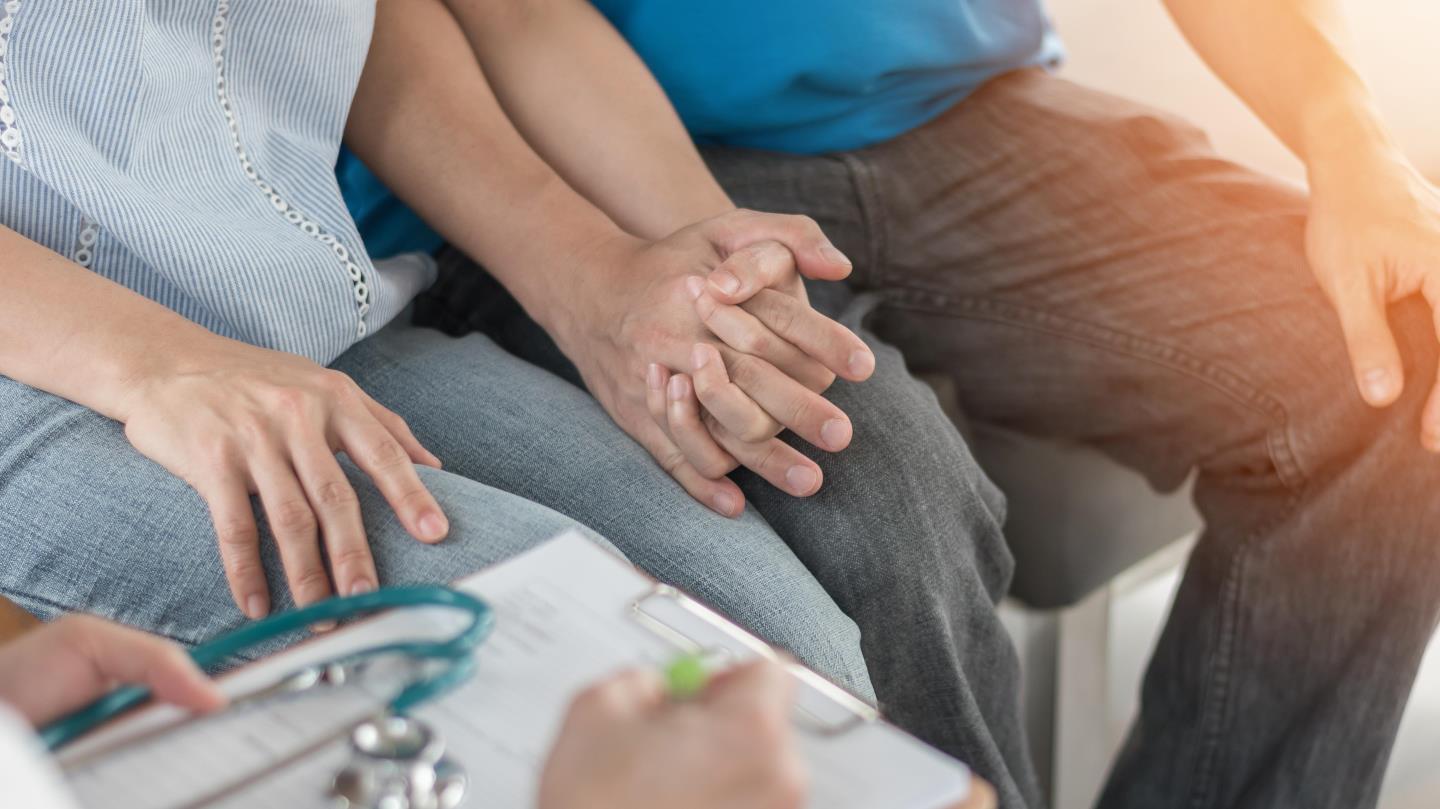
Find out where to get a HIV test in Aberdeen or order a HIV self-test anywhere in Scotland.
An HIV test involves taking a small amount of blood, usually from your arm if taken by a health care provider or a pinprick from your finger if a self-test or dry blood spot kit is used. Then:
- If your HIV test result is negative you will be informed by your healthcare provider.
- If your HIV test result is positive you will be offered an appointment with a specialist, usually at the sexual health clinic. You will discuss your results, treatment options and support needs.
The staff at Grampian Sexual Health Services ensure that they prioritise the support needed right now for any newly diagnosed person
They find that people react and engage differently so they gauge this and build the foundation for an ongoing relationship around this.
They understand that there is a need to feel safe, supported and not judged, both at this initial stage and moving forward.
Help stop the transmission of HIV
This World Aids Day – and indeed, any day of the year – you can show support by getting a HIV test in Aberdeen. This goes for everyone who may be at risk, bearing in mind that almost half of all HIV transmission in Grampian is heterosexual.
It’s one way to help Aberdeen meet its Fast-Track City goals.
“OPVG was instrumental in getting Aberdeen signed up to this as the second city in Scotland,” says Colin. “The main goals of the Fast-Track Cities initiative are to end the transmission of HIV and reduce the stigma and discrimination associated with HIV by 2030.
“We can only do this if people are informed of the facts, including what it is like to live with HIV today, and we dispel the myths associated with HIV that are no longer relevant today and encourage people to get tested.
“You won’t transmit the virus to your partner or partners if you have an undetectable viral load for more than six months. So this awareness has been a gamechanger in raising awareness and understanding that we can stop the transmission of HIV.”
Penny, as part of the Sexual Health and Blood Borne Virus Managed Care Network, is also working on courses for healthcare workers.
She says: “We are developing a training package for NHS Grampian staff with up-to-date information, addressing stigma and discrimination around HIV.”
Find out more about the work of Our Positive Voice Grampian, including details of its Thursday morning open sessions to provide peer support.
You can help play your part in stopping the transmission of HIV by going for a HIV test in Aberdeen if you think you have been at risk, either through your GP or Grampian Sexual Health Services.
